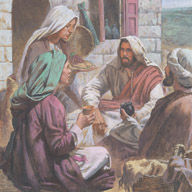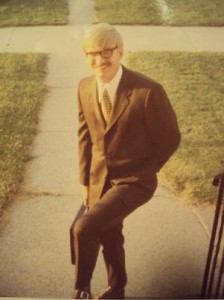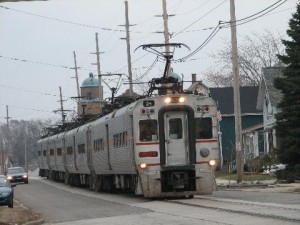Today’s beach trip revealed a surprise, literally. When Birgitta and I came over the dune ready to enjoy a hazy but lovely afternoon together, we saw that someone had dug a giant hole in the sand. And sitting in the middle of it was the previously-buried blue kayak that I watched sink below the sand many months ago. (1/25/11 – “Hidden Away”)
During winter storms the beach’s configuration had changed, and the shallow covering of sand I remembered had grown a foot deep. Seeing that this “lost” boat had been found was very satisfying. The fact that someone was actually hunting for it meant even more.
All of us feel lost once in a while, and when we do, we ache to be found. I remember feeling lost at 13, that awkward age between childhood and adolescence when kids struggle to find their place.
My parents viewed me as a child, but my changing body (pimples and other surprises) told me otherwise. Having moved to a new neighborhood, I’d lost my old friendships and felt like a bottom-feeder at school. My older sister was a beauty, my younger brother a prince, and I longed for a label, too.
Everything came to a head one Sunday morning at Moody Church. I’d asked a Sunday school pal to come home with me for lunch, but she couldn’t, and I took it personally. I started to cry on the church steps, and when Mom arrived she said, “What’s the matter?”
Feeling like I couldn’t possibly summarize my many woes in one sentence I said, “Nobody loves me.”
Now that I’ve mothered seven children through being 13, I see how that conversation was doomed. What statement could possibly have offered the comfort I needed at that moment?
“Oh honey, that’s not true.” Mom said. “Your father and I love you, and so does…” (glancing around) “…so does Caroline!”
Caroline was my brother’s pal, 4 years younger than me, just a little kid. Mom’s “comfort” only deepened my conviction that no one loved me, and my life was without purpose. I felt lost and ached to be found.
God is in that exact business, finding the lost and lavishing his love on them. And he even goes one step further, allowing us to find him, not only when we seek him but even when we don’t. His desire is that none of us feel lost but instead all of us know the delight of being found.
I’ve learned since my crisis on the church steps that most 13 year olds feel as I did, and it quickly passes.
As for this afternoon’s newly visible kayak, if it could talk it would say, “I was lost but now am found!”
“I revealed myself to those who did not ask for me; I was found by those who did not seek me. To a nation that did not call on my name, I said, ‘Here am I, here am I’.” (Isaiah 65:1-2)





